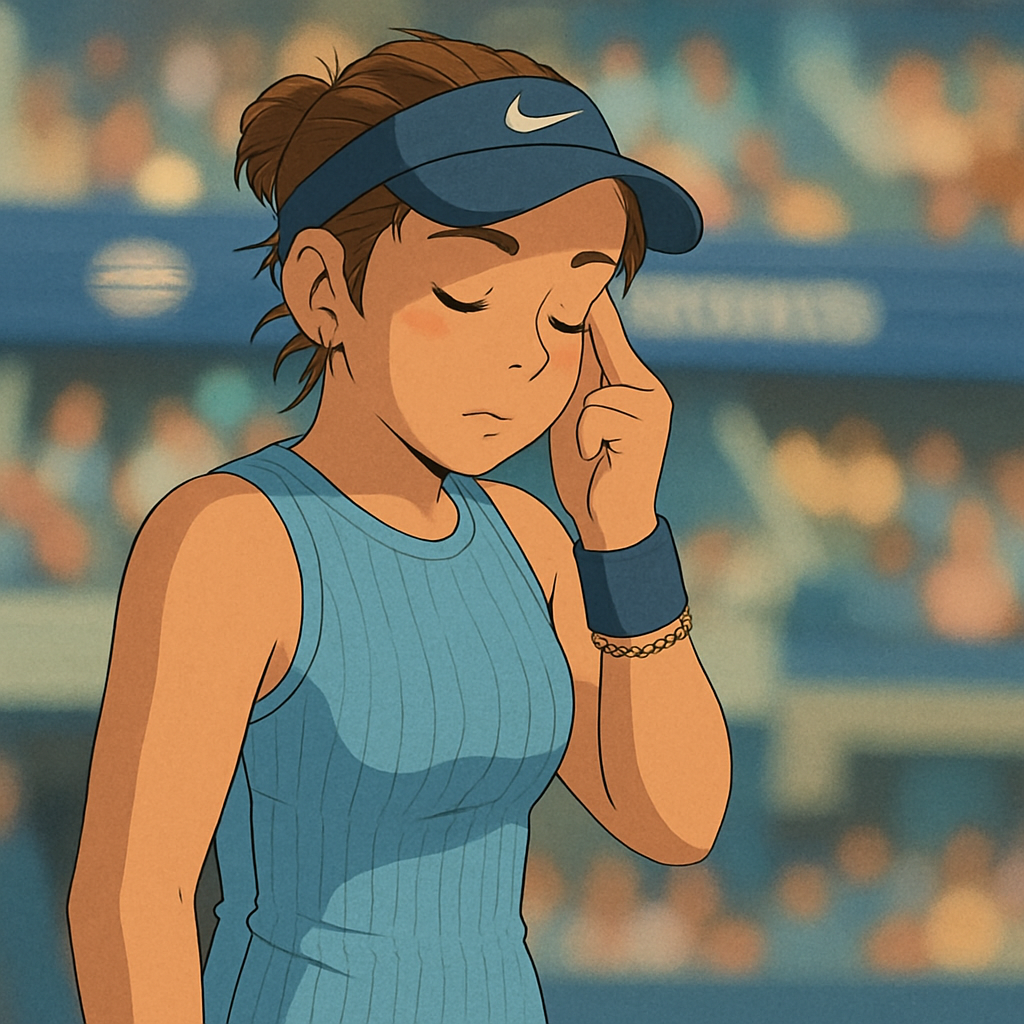PARIS — In August 2019, Amanda Anisimova was on the cusp of superstardom. The American teenager, blessed with a ferocious backhand and preternatural poise, had just electrified the tennis world by reaching the semifinals of the French Open, announcing herself as the sport’s next great hope. Her 18th birthday was just days away, a milestone that promised to unlock new opportunities and cement her arrival. Instead, her world was shattered by unimaginable tragedy when her father and lifelong coach, Konstantin Anisimov, passed away suddenly from a heart attack.
The Ascent of a Prodigy
Amanda Anisimova’s journey to the upper echelons of tennis was inextricably linked to her father, Konstantin. A Russian immigrant who settled in New Jersey, he was the architect of her game, introducing her to tennis at a young age and meticulously crafting the powerful, fluid style that would become her trademark. He was more than a coach; he was her constant companion, her fiercest advocate, and her guiding light on the global tour. Their close-knit bond was the foundation upon which her rapid ascent was built. By 17, she had become the youngest American to reach a Grand Slam semifinal since 1997, a stunning run at Roland Garros that included a decisive victory over defending champion Simona Halep.
The future seemed limitless. The tennis world buzzed with anticipation for her next move. She was poised to be the face of American tennis for the next generation. Reflecting on that time, Anisimova later shared with The New York Times, "I was playing the best tennis of my life. Everything felt possible." But that bright future was about to be plunged into darkness.
A Sudden and Devastating Loss
Just days before her 18th birthday, while preparing for the US Open, Anisimova received the devastating news. Her father had suffered a fatal heart attack at their family home in New Jersey. The man who had been her rock, her coach, and her biggest fan was gone in an instant. The celebration of a milestone birthday was replaced with the profound grief of a funeral. The tragedy sent shockwaves through the tennis community, but for Amanda, it was a deeply personal cataclysm that fundamentally altered her life and career.
The immediate aftermath was a blur of pain and withdrawal. She pulled out of the US Open, her home Grand Slam, and stepped away from the sport indefinitely. The court, once a place of joy and purpose, was now a painful reminder of her loss. In an emotional interview with WTATennis.com upon her return, she articulated the depth of her struggle: "It was the worst thing that could ever happen. It’s still so difficult. I don’t think there’s ever going to be a time where it’s not."
Navigating Grief and a Return
Anisimova’s return to the tour months later was a testament to her resilience, but it was a fraught and challenging process. She was now navigating the brutal demands of professional tennis without the person who had always been her navigator. Her mother, Olga, became her primary support, traveling with her on tour. The weight of her grief was a constant presence, both on and off the court. She described feeling immense pressure to perform, not just for herself, but for her father’s legacy.
Despite the emotional turmoil, flashes of her brilliance still shone through. She captured her second WTA title in 2022 at the Melbourne Summer Set, a poignant and emotional victory that she dedicated to her father. However, maintaining consistency proved incredibly difficult. The mental and emotional toll of her loss manifested in her career in several ways:
- Inconsistent Results: Periods of stunning wins were often followed by unexpected losses.
- Tournament Withdrawals: She occasionally pulled out of events, citing personal reasons.
The pressure to meet the sky-high expectations set before her father’s death became a heavy burden. In a candid moment, she revealed, "There are matches where I just can’t handle the emotions. It’s not about tennis anymore. It’s about everything I’ve been through. It’s a lot for a young person to handle."
Prioritizing Mental Health
In the years following the tragedy, Anisimova has become a vocal advocate for mental health in athletics. Her openness about her struggles has resonated with fans and fellow players alike, humanizing the often-glamorized world of professional sports. After another extended break from the tour in 2023, she announced her decision to step away indefinitely, explicitly stating the need to prioritize her mental well-being.
This decision, while difficult, highlighted a profound shift in her perspective. The pursuit of trophies and rankings was no longer the sole focus; healing and finding a sustainable balance became paramount. Her journey underscores the critical importance of mental health, especially for young athletes dealing with immense pressure and personal trauma.
A Legacy of Resilience
Today, Amanda Anisimova’s story is one of profound loss but also incredible strength. While her career trajectory was irrevocably changed by the tragedy just before her 18th birthday, her legacy is expanding beyond her powerful groundstrokes. She has shown immense courage in facing her grief in the public eye and has made the brave choice to prioritize her health over her profession.
The potential that shone so brightly in Paris in 2019 is still there, but her definition of success has evolved. It is no longer measured solely in titles won, but in the daily resilience of moving forward. Her father’s influence remains a part of her, a silent partner in every match she plays. As she continues to navigate her path, she carries with her the love of a father who believed in her unconditionally, and the strength to honor his memory in her own way, on her own terms.
Her experience serves as a powerful reminder that athletes are people first, navigating the same profound human experiences as everyone else, albeit under an unforgiving spotlight. Amanda Anisimova’s greatest victory may not be a Grand Slam title, but her ongoing bravery in the face of unimaginable heartbreak.

